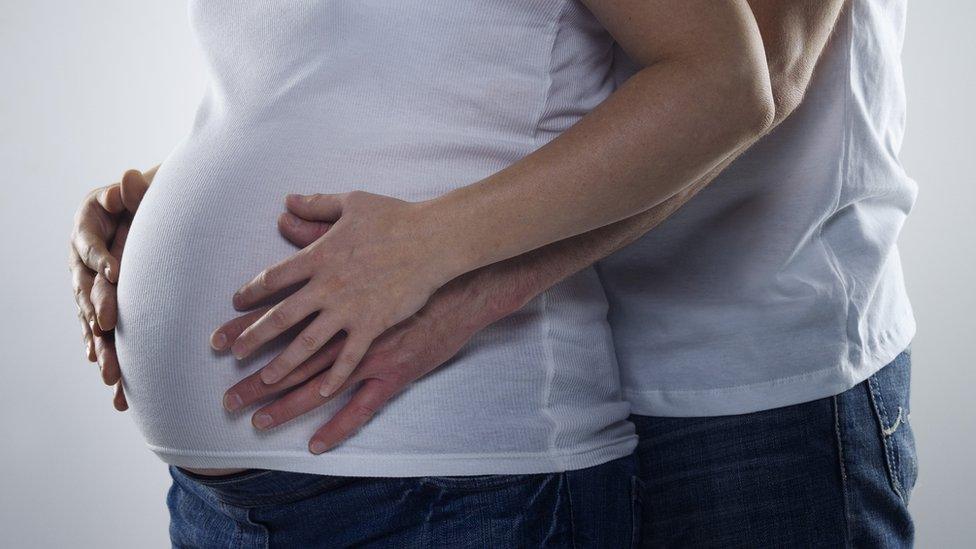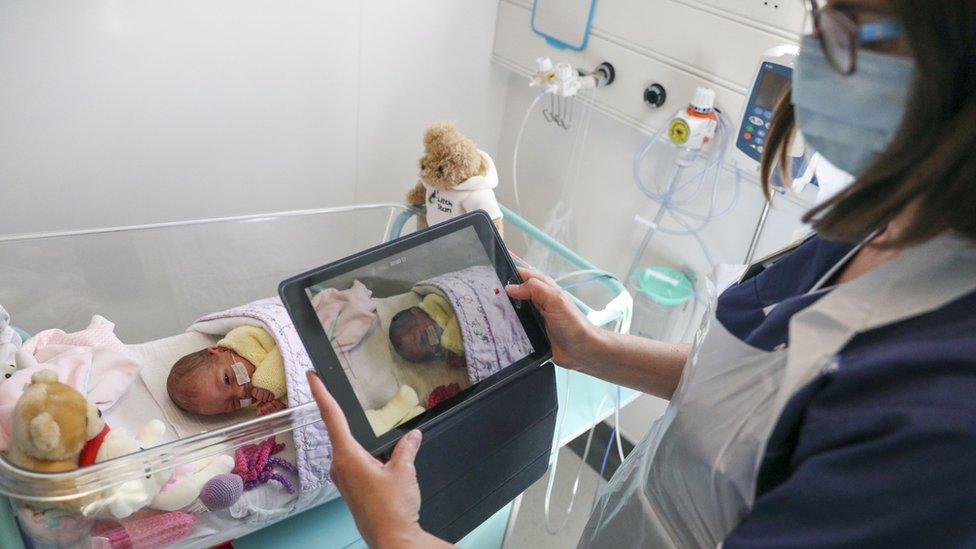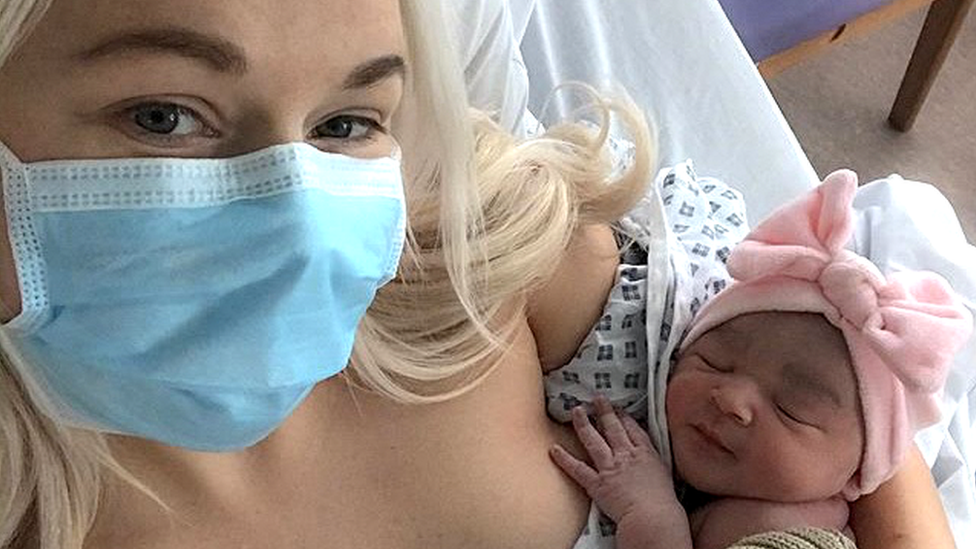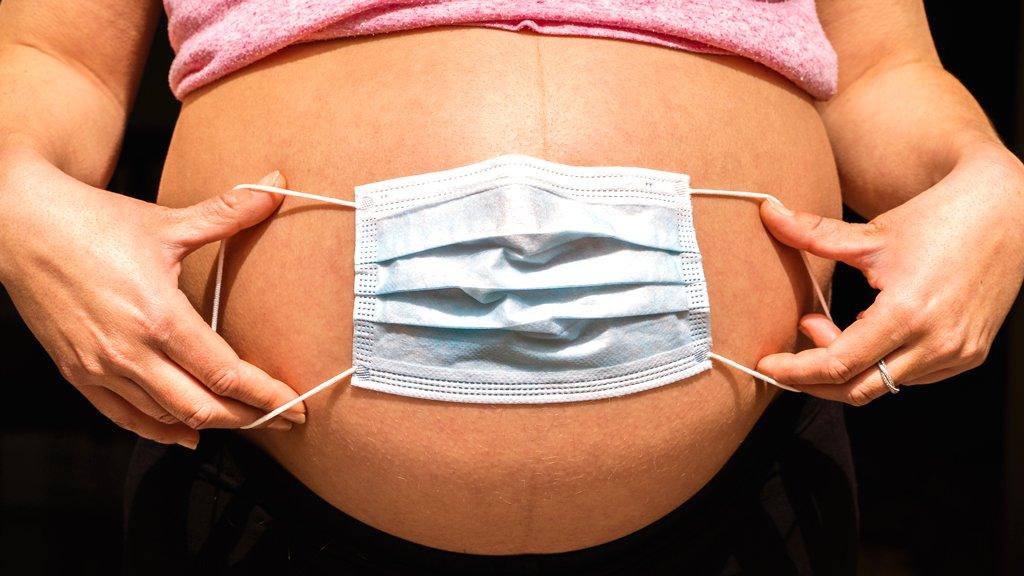Allow pregnant women partner support 'at all times'
- Published

Pregnant women should be allowed to have one person alongside them during scans, appointments, labour and birth, under new NHS guidance sent to trusts in England.
The chosen person should be regarded as "an integral part of both the woman and baby's care" - not just a visitor.
But midwives are concerned safety is being sacrificed in favour of popularity.
They say decisions on access should be left to local maternity staff.
Since the first lockdown, individual hospitals have drawn up their own rules on partners being present, meaning some women have had to give birth unaccompanied.
The new guidance, external says pregnant women "value the support from a partner, relative, friend or other person through pregnancy and childbirth, as it facilitates emotional wellbeing".
Women should therefore have access to support "at all times during their maternity journey".
All trusts should now make it easy for this to happen, while keeping the risk of coronavirus transmission within NHS maternity services as low as possible.
How has giving birth changed during the pandemic?
The guidance says pregnant women should chose their support person, who does not need to be the co-parent or baby's father.
Hospital trusts are being asked to reduce the risks of virus spread by:
making changes to the space used to provide maternity care, to allow social distancing
using rapid tests on women and their support person before they attend appointments
The guidance says support people who test negative should be treated as part of the team supporting the woman.
But Royal College of Midwives chief executive Gill Walton said: "With more areas moving into tier-three restrictions, many will question the common sense of releasing this new guidance now.
"We support and trust local maternity and midwifery leaders to make decisions in the best interest of the women in their care.
"We trust them to work with health and safety representatives and to follow NHS England's own risk assessment process, which enables maternity services to make decisions about visiting and access for partners and families that are based on current, local information."
Rapid test concern
Pregnancy and childbirth doctors said they welcomed the new guidance, recognising how difficult restrictions on birth partners had been for women during the pandemic - but they queried the use of rapid tests to assess risk.
"We hope the roll-out of rapid testing will increase the time partners who test negative can spend with women and their babies on antenatal and postnatal wards, although we have concerns about the capacity and sensitivity of lateral flow testing to enable maternity services to reopen fully," said Dr Edward Morris, President of the Royal College of Obstetricians and Gynaecologists.
Dr Morris said decisions about visiting and access for partners and families would "need to be based on local information and testing capacity, and clearly communicated to women and their families".

SOCIAL DISTANCING: Can I give my friends a hug?
SUPPORT BUBBLES: What are they and who can be in yours?
TESTING: How do I get a virus test?
THE R NUMBER: What it means and why it matters
TEST AND TRACE: How does it work?

Related topics
- Published30 November 2020

- Published5 November 2020

- Published26 September 2020

- Published1 April 2020

- Published11 September 2020
